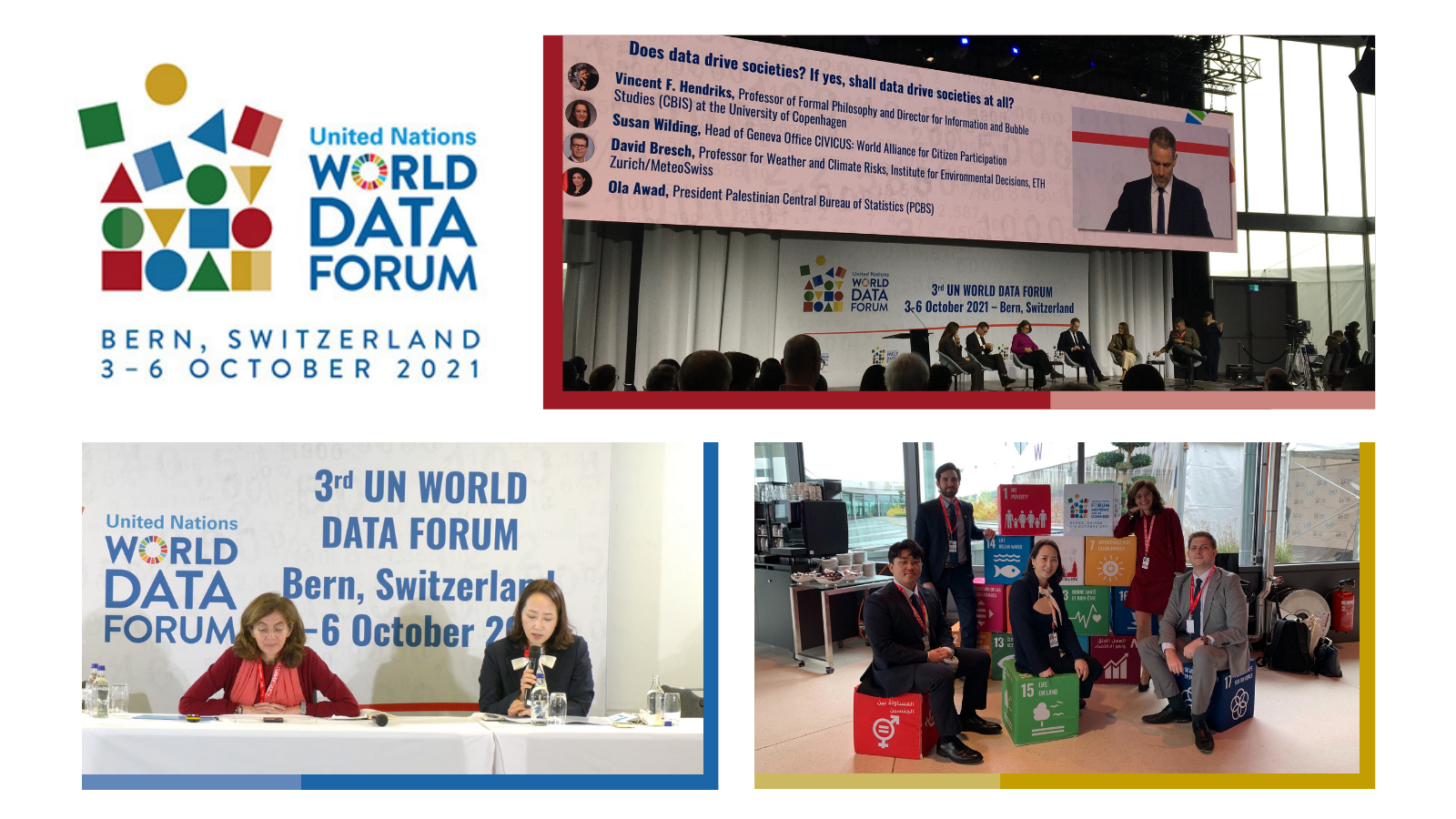
Bern (Switzerland) Hybrid, 4 October 2021 – The UN World Data Forum was hosted by the Swiss Confederation and the Federal Statistical Office from 3 to 6 October 2021, with support from the Statistics Division of the UN Department of Economic and Social Affairs, under the guidance of the United Nations Statistical Commission and the High-level Group for Partnership, Coordination and Capacity-Building (HLG-PCCB) for Statistics for the 2030 Agenda for Sustainable Development. The forum aims at gathering data experts and users to spur data innovation, mobilize high-level political and financial support for data, and build a pathway to better data for sustainable development.
Session on “Real-time data collection systems for agile policymaking and foresight to prevent trafficking of Covid-19- related falsified vaccines and other medical products” was organized by UNODC, INEGI, UNODC-INEGI CoE, and UNODC-KOSTAT CoE. The session’s goal was to show how different data collection systems can respond to the challenges of providing real-time data – a key attribute in today’s data market – while maintaining minimal standards of accuracy, validity and transparency.
The session discussed the need for improved and expanded real-time data collection systems that cover predictive analytics and capture different types of crime, such as drug trafficking, trafficking of falsified medical products, trafficking in persons, homicide, property crime and violence against women.
In this session, Ms. Hyun Jung Park, Coordinator of UNODC-KOSTAT Centre of Excellence for Statistics on Crime and Criminal Justice in Asia and the Pacific pointed out major changes in our daily lives, such as telecommuting, OTT media service consumption, and the increase in the digital platform industry; and how those changes and innovations will be needed in data collection and analysis in supporting evidence-based policymaking. Also, it is critical to reflect on new trends in crime data collection and apply to practices accordingly. Ms. Park also introduced the work of UNODC-KOSTAT Centre of Excellence in assisting its 56 Member States with technical support and research activities to improve crime statistics in Asia and the Pacific region and share innovative cases in the future.
Other panellists discussed the importance of proactive responses to new and emerging threats through innovation and utilization of new technologies and changes for intervention arisen from digitalization in recent times; and the need for improved and coordinated monitoring and analysis at national, regional, and international level with regard to drug and crime patterns and threats. Ms. Angela Me, Chief of Research and Trend Analysis Branch at UNODC, pointed out the challenges that come with increased accessibility to illicit drugs via social media platforms, apps, and marketplaces in the dark web. Ms. Me also mentioned how the transnational organized crime groups quickly adapted to the new environment, thus little to no change made to the level of consumption at the national, regional, and international level. Dr. Nicolas Christin, Associate Professor at Carnegie Mellon University also pointed out the surge in online shopping as well as dark web markets during the pandemic.
Further information on the UNODC-KOSTAT CoE can be found here, Twitter @CoE_UNODC and Facebook @UNODC.KOSTAT.CoE.